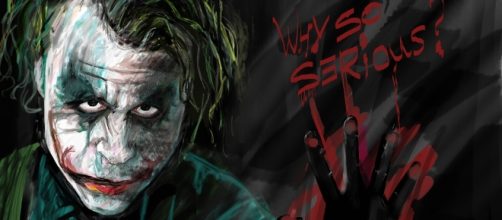2017 has been a great year for superhero movies. With gems like "Logan" and "Wonder Woman" proving to be both critical and box office successes, it seems as though the bar has been raised for the next three superhero films to be released this year.
However, even with the plethora of superhero films that have been released since 2008, none of them have been able to top what is arguably still the best superhero film ever made: "The Dark Knight". While some people may debate that "Logan" has come the closest to challenging "The Dark Knight" for this title, it still falls short.
So what makes "The Dark Knight" so much better than all of its successors and predecessors?
The narrative
Part of what made "The Dark Knight" so incredible was how innovative it was. Plenty of people would argue that films like "Guardians of the Galaxy" and "Deadpool" were also innovative. Unfortunately, they were more financially revolutionary than artistically. "Guardians of the Galaxy" proved that films about obscure superheroes with fairly small followings could still be financial successes. Meanwhile, "Deadpool" showed that studios could get away with making R-rated superhero movies without worrying about them suffering at the box office.
The reason "The Dark Knight" is so innovative is because of how well it mixes different genres.
On the surface, it appears to be a typical comic book film, however, at it's core, it’s really more of a crime drama. Unlike other superhero films, "The Dark Knight" isn’t about some villain trying to destroy a city or take over the world. Rather, it’s about one man chasing down a criminal who is seemingly always one step ahead of law enforcement.
Not to mention that by lowering the stakes, the possibility of the villain winning feels far more plausible, thus raising dramatic tension.
Because of this, so many other superhero films just feel dull. When the villain’s aspirations are to destroy Earth, conquer the galaxy, etc., any dramatic tension that might’ve existed is instantly deflated.
We as the audience already know that they’re not going to succeed because it’s a superhero movie. If the villain succeeded in destroying Earth or the galaxy, it would be impossible to make a sequel which has become practically mandatory for modern blockbusters.
These are the same reasons why "Logan" worked so well. Although "Logan" appeared to be a superhero film, it was really more of a western. The concept of an old grizzled gun for hire being paid to do one last job escorting someone across the country is a very common trope in a lot of westerns. Instead of focusing on massive action scenes, the film was far more concerned at showing the physical and mental toll of being a superhero. While both films do an amazing job with the “less is more” approach, ‘Logan’ still doesn’t quite match "The Dark Knight" for one reason.
The villain
Come on, did you really think an article about how great ‘The Dark Knight’ is wouldn’t include a segment about Heath Ledger’s Joker?
A pretty big problem that almost every superhero movie has had for the last decade is the parade of forgettable villains. Marvel has especially been guilty of this in which they’ve only had two memorable villains in their last 15 films, Loki and Thanos. Considering the fact that Thanos hasn’t even done anything yet, Loki has really been the only noteworthy villain in the entire Marvel Cinematic Universe (MCU). Even the villains in "Logan", who were definitely more interesting than plenty of their predecessors, still felt somewhat stale.
On the other hand, the Joker in "The Dark Knight" works on so many levels.
The Joker was already the most well-known villain among all of Batman’s enemies, and with all the different incarnations and interpretations of the character, he already had a well-established audience. Because of this, Ledger’s take on the villain felt even that much fresher in which he was focused more on realism rather than being faithful to the comics. While most fans were used to seeing a much more fun and campy version of the character, Ledger’s version focused more on his dark side which worked absolutely perfectly.
Instead of making him look like some comedic mafioso, this Joker represented something that modern audiences could actually root for: anti-establishment. Although the Joker used acts of terrorism such as bombings, shootings, and stabbings to help spread his message, you could almost argue that they were necessary evils.
Because of the Joker’s genuine dedication to his own philosophies, he became every bit as likeable as Batman which created an extremely compelling dynamic between the two of them.
This version of the Joker had meaning behind everything he did, even his clown make-up meant something in which it further symbolized the character’s overall attitude to the “established order”. He wasn’t trying to take over Gotham for the sake of money or power like every other cliché villain, he wanted to control the city to prove a point. His main drive was to show that all of the things that society leans on, such as law and order and basic morality, are just subjective notions that could change the moment the status quo is challenged. Despite the fact that the Joker was a complete sociopath, in a sort of messed up way, on some level you can actually agree with some of his beliefs.


